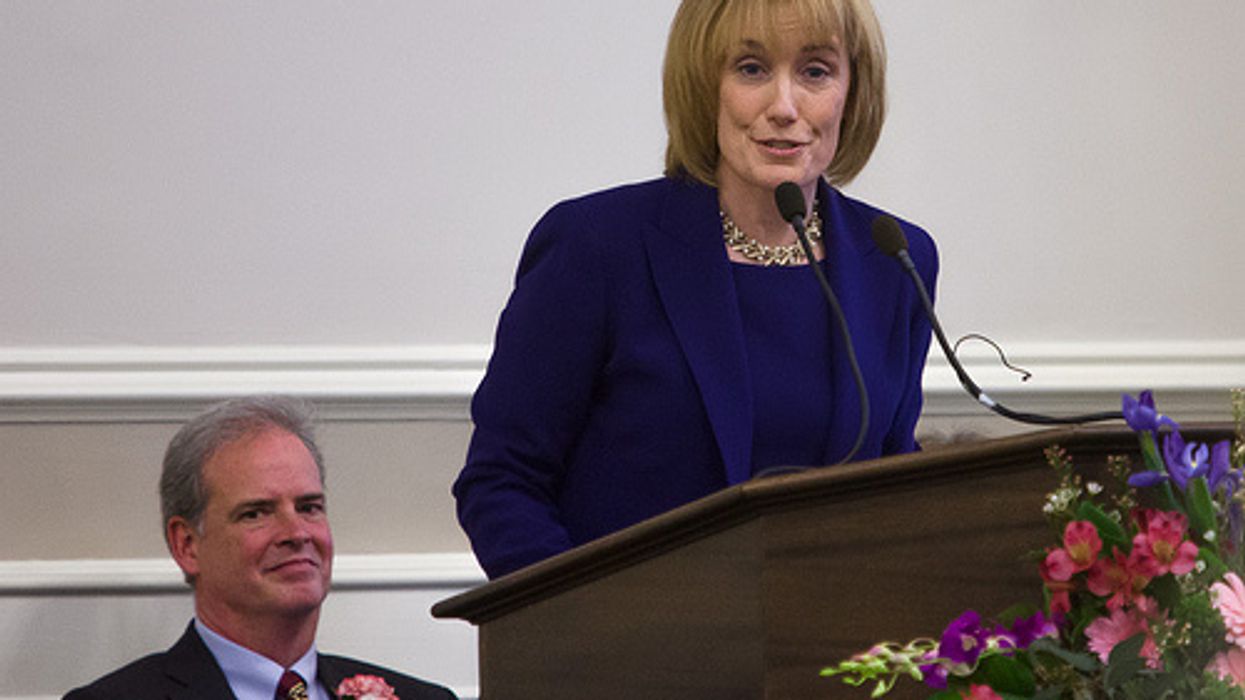Habeas Corpus And The Cabinet Of Clowns
She did not even know what habeas corpus is. It should come as no surprise, judging from her actions.
At a hearing, she was asked by Sen. Maggie Hassan, a New Hampshire Democrat:
Senator Hassan: "Secretary Noem, what is habeas corpus?"
Homeland Security Secretary Kristi Noem: "Well, habeas corpus is a constitutional right that the president has to be able to remove people from this country and suspend their right to — "
Hassan: "No. Let me stop you, ma'am. Excuse me, that's incorrect."
It's not just incorrect. It's completely backward. Habeas corpus is not the president's right to be able to remove people from this country at will. He doesn't have that right. Habeas corpus ensures that. Without it, people could be detained at will because the king or the fuhrer or the president doesn't like them.
Habeas corpus developed in the English courts in the 1600s in opposition to the divine right of the king to incarcerate. A petition for habeas corpus was the way you enforced the rule of law. It reflects a principle enshrined in the Magna Carta that "No man shall be arrested or imprisoned ... except by the lawful judgment of his peers and by the law of the land."
"Habeas corpus" technically means that "you have the body," you being the warden or the executive, unlawfully, in violation of my constitutional rights. Because you have the wrong man. Because there is a court order protecting me. Because you have no legal authority to deport me. All of the detainees who are challenging their unlawful detention and deportations are relying on habeas corpus petitions to federal courts.
In the first Judiciary Act of 1789, Congress made clear that the federal courts have jurisdiction to consider habeas petitions from federal prisoners. After the Civil War, Congress expanded that jurisdiction to include state prisoners held in violation of federal law or the Constitution. As Chief Justice John Marshall wrote in 1830, the "great object" of the writ of habeas corpus "is the liberation of those who may be imprisoned without sufficient cause." The "writ of habeas corpus," the Supreme Court has recognized, "is the fundamental instrument for safeguarding individual freedom against arbitrary and lawless state action."
This is what Trump adviser Stephen Miller, whose influence in the Muskless White House cannot be overestimated, wants to get rid of. He is, according to news reports, actively floating the idea.
Unfortunately for Miller, and fortunately for the rule of law, the Constitution has something to say about this. Article 1, which deals with the power of Congress, provides that "The Privileges of the Writ of Habeas Corpus shall not be suspended unless when in Cases of Rebellion or Invasion the public Safety may require it."
Most recently, it was suspended by the Act of Congress in 1941 after the attack on Pearl Harbor; before that, it was suspended three other times including during the Civil War. At that point, President Abraham Lincoln, whose actions Noem cited as a precedent for suspension of the right, tried to suspend the right when Congress was out of session; his actions were challenged and rejected by the Court. Two years later, Congress authorized the suspension.
But Kristi Noem didn't seem to know any of this when she testified that the president had the right to deport anyone he wanted to, without their having a right to go to court to protest. Asked by Sen. Andy Kim of New Jersey how many times habeas corpus had been suspended or where the authority to do so came from, she said she didn't know. She didn't even know which Article the Suspension Clause is found in, that is Article 1, which is about the power of Congress, not the president.
The woman in charge of detaining college students and deporting gay hairdressers and separating families and sending people to third countries in the Third World should know better. Noem claims she isn't a constitutional lawyer. You don't need to be a constitutional lawyer to know what habeas corpus is, any more than you need to be a medical doctor to know you shouldn't take your grandchildren swimming in bacteria-infected fecal water. What is with this ignorant Cabinet of clowns?
Reprinted with permission from Creators.












